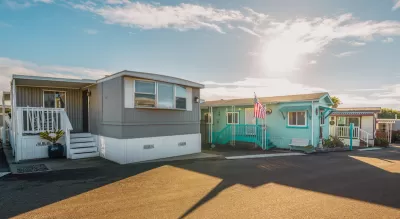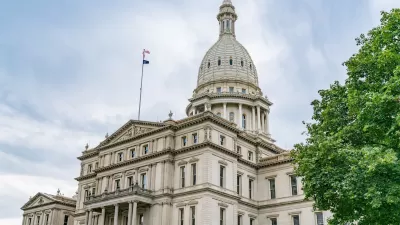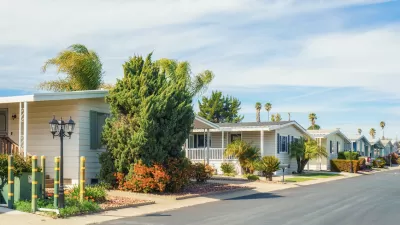In a trend that has accelerated since the pandemic, over one in five mobile home parks in Maine are owned by out-of-state investors.

Over 20 percent of mobile home parks in Maine are owned by out-of-state investors, reports Zara Norman of Bangor Daily News, sparking affordability concerns among residents and housing advocates.
“Long ago, these parks were generally owned by the family owners who built them. Many of those owners are hitting retirement age and selling to corporate investors eager to scoop up some of the last bastions of affordable living,” Norman explains. “Almost always, they immediately increase lot fees on the residents that typically own their homes and steadily raise rent thereafter. New parks are almost never built, keeping rents high.”
While the parks are an attractive investment for owners, these tactics put residents — many of whom are elderly and on a fixed income — at risk of eviction and homelessness. A growing movement to put ownership into the hands of mobile home park residents seeks to combat these risks through cooperatively owned parks, but residents who want to purchase the land they live on often come up against challenges with loan financing. Some states, like New York, have passed legislation to protect residents and allow mortgages and mortgage pool insurance for manufactured homes.
FULL STORY: Out-of-state investors own 1 in 5 of Maine's mobile home parks

Planetizen Federal Action Tracker
A weekly monitor of how Trump’s orders and actions are impacting planners and planning in America.

DARTSpace Platform Streamlines Dallas TOD Application Process
The Dallas transit agency hopes a shorter permitting timeline will boost transit-oriented development around rail stations.

Congressman Proposes Bill to Rename DC Metro “Trump Train”
The Make Autorail Great Again Act would withhold federal funding to the system until the Washington Metropolitan Area Transit Authority (WMATA), rebrands as the Washington Metropolitan Authority for Greater Access (WMAGA).

Supreme Court Ruling in Pipeline Case Guts Federal Environmental Law
The decision limits the scope of a federal law that mandates extensive environmental impact reviews of energy, infrastructure, and transportation projects.

Texas State Bills to Defund Dallas Transit Die
DART would have seen a 30% service cut, $230M annual losses had the bills survived.

Bikeshare for the Win: Team Pedals to London Cricket Match, Beats Rivals Stuck in Traffic
While their opponents sat in gridlock, England's national cricket team hopped Lime bikes, riding to a 3-0 victory.
Urban Design for Planners 1: Software Tools
This six-course series explores essential urban design concepts using open source software and equips planners with the tools they need to participate fully in the urban design process.
Planning for Universal Design
Learn the tools for implementing Universal Design in planning regulations.
Roanoke Valley-Alleghany Regional Commission
City of Mt Shasta
City of Camden Redevelopment Agency
City of Astoria
Transportation Research & Education Center (TREC) at Portland State University
US High Speed Rail Association
City of Camden Redevelopment Agency
Municipality of Princeton (NJ)





























